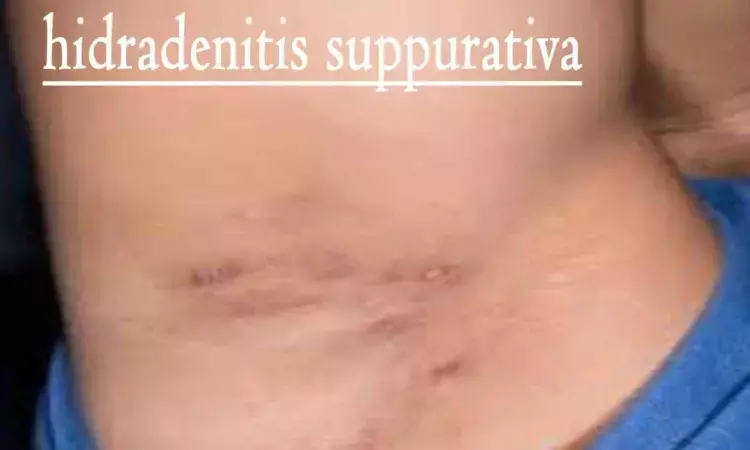- Home
- Medical news & Guidelines
- Anesthesiology
- Cardiology and CTVS
- Critical Care
- Dentistry
- Dermatology
- Diabetes and Endocrinology
- ENT
- Gastroenterology
- Medicine
- Nephrology
- Neurology
- Obstretics-Gynaecology
- Oncology
- Ophthalmology
- Orthopaedics
- Pediatrics-Neonatology
- Psychiatry
- Pulmonology
- Radiology
- Surgery
- Urology
- Laboratory Medicine
- Diet
- Nursing
- Paramedical
- Physiotherapy
- Health news
- Fact Check
- Bone Health Fact Check
- Brain Health Fact Check
- Cancer Related Fact Check
- Child Care Fact Check
- Dental and oral health fact check
- Diabetes and metabolic health fact check
- Diet and Nutrition Fact Check
- Eye and ENT Care Fact Check
- Fitness fact check
- Gut health fact check
- Heart health fact check
- Kidney health fact check
- Medical education fact check
- Men's health fact check
- Respiratory fact check
- Skin and hair care fact check
- Vaccine and Immunization fact check
- Women's health fact check
- AYUSH
- State News
- Andaman and Nicobar Islands
- Andhra Pradesh
- Arunachal Pradesh
- Assam
- Bihar
- Chandigarh
- Chattisgarh
- Dadra and Nagar Haveli
- Daman and Diu
- Delhi
- Goa
- Gujarat
- Haryana
- Himachal Pradesh
- Jammu & Kashmir
- Jharkhand
- Karnataka
- Kerala
- Ladakh
- Lakshadweep
- Madhya Pradesh
- Maharashtra
- Manipur
- Meghalaya
- Mizoram
- Nagaland
- Odisha
- Puducherry
- Punjab
- Rajasthan
- Sikkim
- Tamil Nadu
- Telangana
- Tripura
- Uttar Pradesh
- Uttrakhand
- West Bengal
- Medical Education
- Industry
Intravenous ertapenem effective in hidradenitis suppurativa, concerns may arise due to antimicrobial resistance: JAMA

USA: A recent study published in JAMA Dermatology has shed light on the efficacy and durability of intravenous (IV) ertapenem therapy for recalcitrant hidradenitis suppurativa (HS)
The retrospective medical record review of 98 patients with HS revealed that IV ertapenem administration for an average of 13 weeks improved inflammatory and clinical markers and heightened patient satisfaction. However, the researchers suggest monitoring this approach to HS therapy for the emergence of antimicrobial resistance (AMR) due to the longer than standard treatment course.
"For patients with hidradenitis suppurativa who received IV ertapenem treatment over a mean of 13.1 weeks, there was a significant decrease in HS Physician Global Assessment score, C-reactive protein, a numerical rating scale for pain, interleukin-6, and leukocytes," the researchers reported.
Hidradenitis suppurativa is a debilitating follicular skin disorder, in which bacterial colonization is typical. Advanced HS remains extremely challenging to treat. Oral antibiotic efficacy can be unreliable; however, selective intravenous antibiotics, such as ertapenem, may provide favourable clinical outcomes. Given this, Avigdor Nosrati, Division of Dermatology, Department of Medicine, Albert Einstein College of Medicine, New York, New York, and colleagues aimed to explore optimal course duration, efficacy, and patient satisfaction associated with IV ertapenem for HS.
For this purpose, the research team conducted a retrospective review of the medical records of 98 patients with HS between 2018 and 2022. Patient outcomes were measured and evaluated before and after treatment. Participants were followed up in a telephone survey assessing patient satisfaction and perspectives.
Patients were treated with 1 g of ertapenem, self-administered at home through a peripheral IV central catheter using an elastomeric pump for 12 to 16 weeks. Antiandrogens and immunomodulatory biologic therapies initiated before ertapenem were maintained throughout the treatment course. A total of 98 patients (mean age, 35.8 years; 62.2% female) with HS were treated with intravenous ertapenem.
The primary outcomes included a numerical rating scale for pain [an 11-point scale in which a score of 0 indicates no pain and a score of 10 indicates the worst possible pain]), markers of inflammation (such as leukocytes, C-reactive protein, erythrocyte sedimentation rate, and interleukin-6), and clinical severity (evaluated through the HS Physician Global Assessment score [a 6-point scale ranging from clear to very severe]. These outcomes were measured at baseline, the midcourse of IV ertapenem treatment, at the end of the course, and posttherapy. At these 4 points, bacterial abundance was also examined and patient satisfaction was assessed during follow-up.
The mean treatment duration spanned 13.1 weeks, with posttherapy follow-up occurring after 7.8 weeks.
The key findings of the study were as follows:
- From baseline to posttherapy follow-up, significant reductions were found in the mean (SD) HS Physician Global Assessment scores (3.9 vs 2.7) and the numerical rating scale for pain (4.2 vs 1.8), C-reactive protein (5.4 vs 2.4 mg/dL), interleukin-6 (25.2 vs 13.7), and leukocytes (11.34 vs 10.0).
- At follow-up, 78.0% of patients participated in the telephone survey, where 80.3% reported medium to high satisfaction; 90.8% would recommend ertapenem to other patients.
"The use of antibiotics continues to play a complementary role in the management of hidradenitis suppurativa as new immunomodulatory therapies are developed," the researchers wrote.
"There is a need for larger, prospective, randomized clinical trials to further optimize ertapenem dosing and duration, to evaluate the coadministration of other therapies, and to develop strategies for maintaining therapeutic outcomes," they concluded.
Reference:
Nosrati A, Ch’en PY, Torpey ME, et al. Efficacy and Durability of Intravenous Ertapenem Therapy for Recalcitrant Hidradenitis Suppurativa. JAMA Dermatol. Published online February 14, 2024. doi:10.1001/jamadermatol.2023.6201
Dr Kamal Kant Kohli-MBBS, DTCD- a chest specialist with more than 30 years of practice and a flair for writing clinical articles, Dr Kamal Kant Kohli joined Medical Dialogues as a Chief Editor of Medical News. Besides writing articles, as an editor, he proofreads and verifies all the medical content published on Medical Dialogues including those coming from journals, studies,medical conferences,guidelines etc. Email: drkohli@medicaldialogues.in. Contact no. 011-43720751


